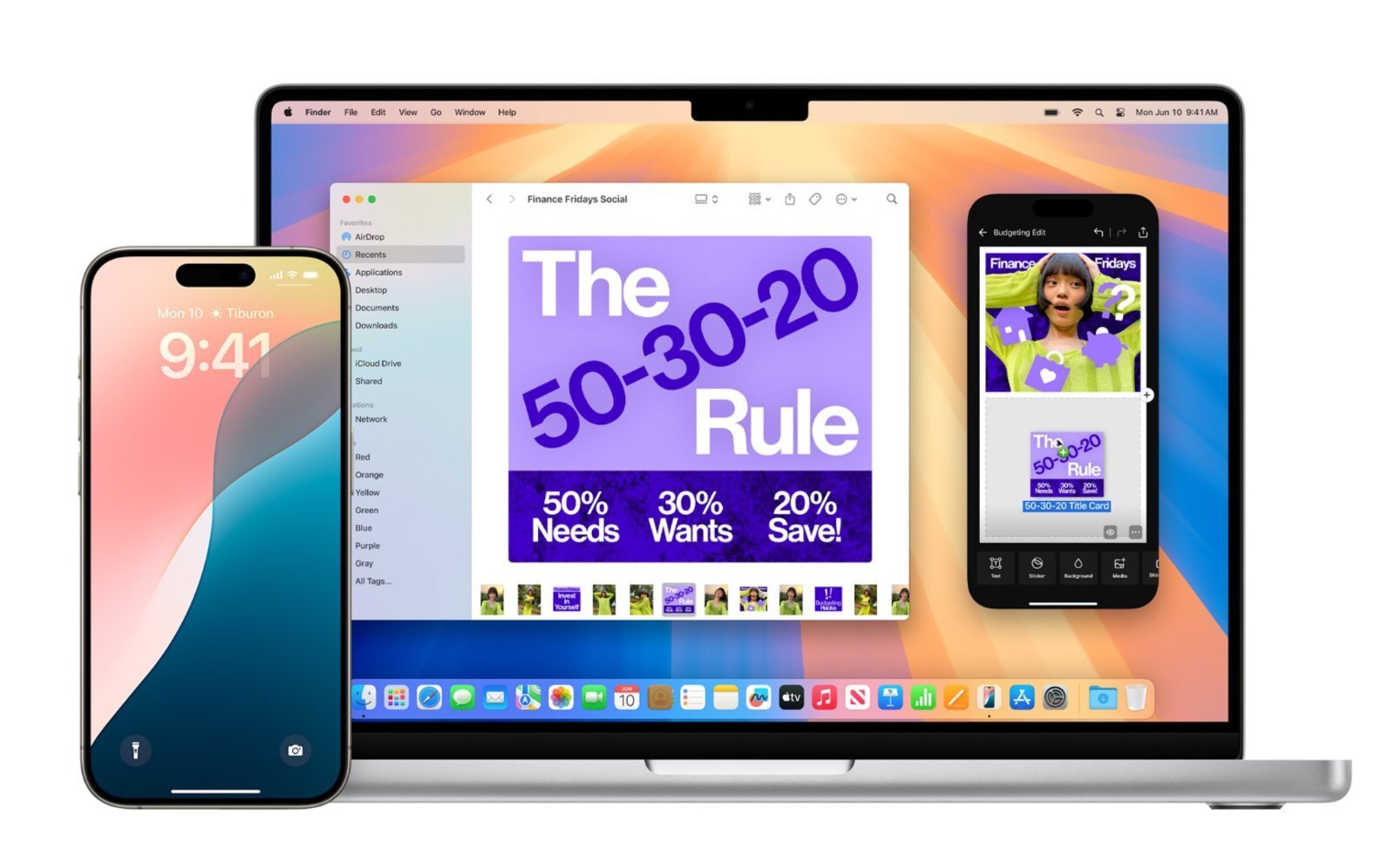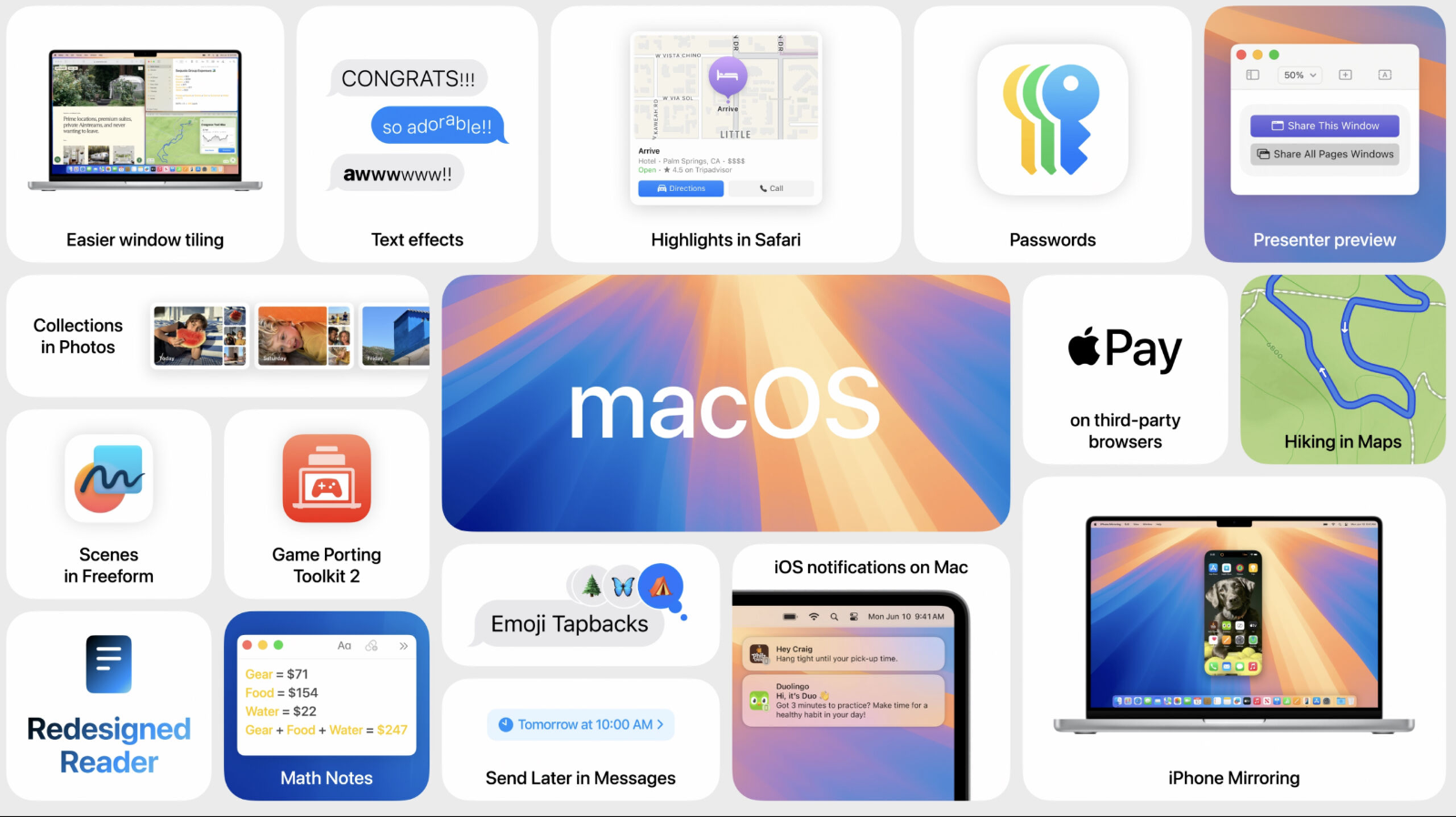Apple has begun the official presentation of macOS 15as part of the Worldwide Developers Conference 2024. The new version, codenamed Sequoia, brings together elements of iOS 18 as well as some features specific to the devices it supports.
Users who split their time between Windows and macOS will be pleased to find that Apple has finally implemented a form of automatic window tiling in macOS. Therefore, it is easier to automatically arrange windows on the screen, without having to manually move and resize, or switch to full screen mode.

Another feature, called iPhone Mirroring, sends the user’s iPhone screen to the Mac so they can use apps directly on the mobile phone while they launch them through the Mac’s keyboard and trackpad. There is also the ability to digitally transfer audio from iPhone to Mac. For privacy reasons, the phone’s screen remains locked while apps transfer information to the Mac, while the Mac can also receive notifications from the iPhone alongside those from its operating system (it’s not yet clear how operating systems will manage duplicate notifications from apps like Messages Calendar or other apps that receive the same updates on both platforms).
For gamers, Apple has announced a second version of the Game Porting Toolkit, making it easier to port Windows games to macOS and the corresponding macOS games to iOS and iPadOS.
Some of the changes are consistent with those Apple announced at its iOS and iPadOS presentation, including support for RVS and advanced reactions in Messages, a redesigned Calculator app like the one introduced for iPad, as well as a Math Notes feature for written equations in the Notes app. All Apple platforms, as well as Windows, are getting a new passwords app that will likely replace many password managers like 1Password and Bitwarden.

All of Apple’s operating systems will benefit from some of the new AI capabilities the company is developing, including image generation and a revamped version of Siri based on a large language model (LLM). In Apple’s demonstration, Siri was aware of the contents of the screen and could intervene directly in apps, understanding the context of previous requests while processing subsequent requests. The entire operating system will also support text summarization, allowing users to highlight specific points in an email or note, with the operating system taking care of creating the summary. The Voice Memos and Phone apps are getting new transcription and summarization features, while Image Playground will let you create images and emojis in Messages, Notes, and other apps.
Apple Intelligence features will generally require a Mac with an M1 processor or later, though it’s not yet clear where Apple draws the line between features that happen on-premises or in the cloud.
The developer beta for macOS Sequoia is available starting today, followed by an advanced public beta in July. As usual, the official release of the operating system in its full form will take place in the fall.
-

4





More Stories
In Greece Porsche 911 50th Anniversary – How much does it cost?
PS Plus: With a free Harry Potter game, the new season begins on the service
Sony set to unveil PS5 Pro before holiday season – Playstation